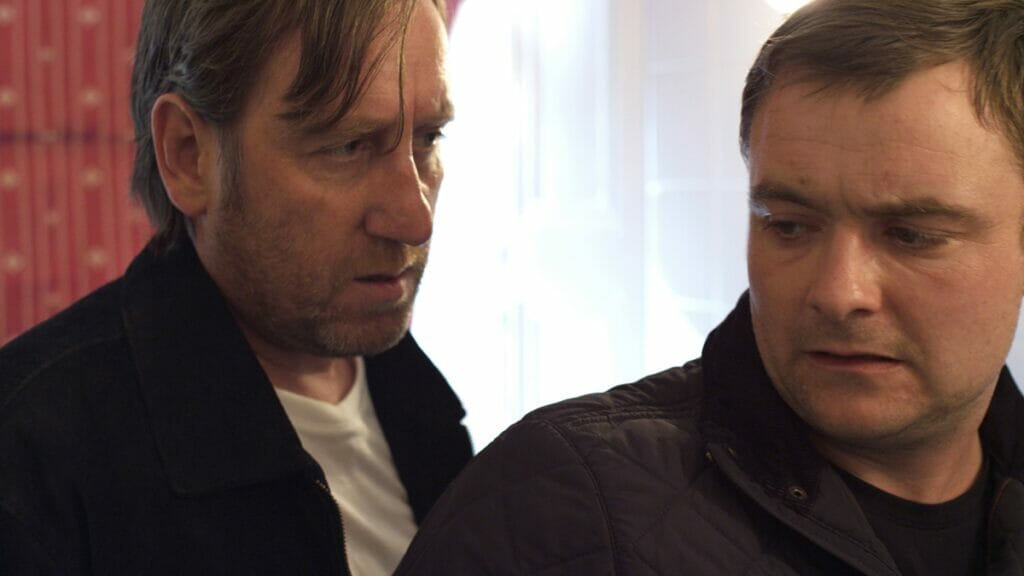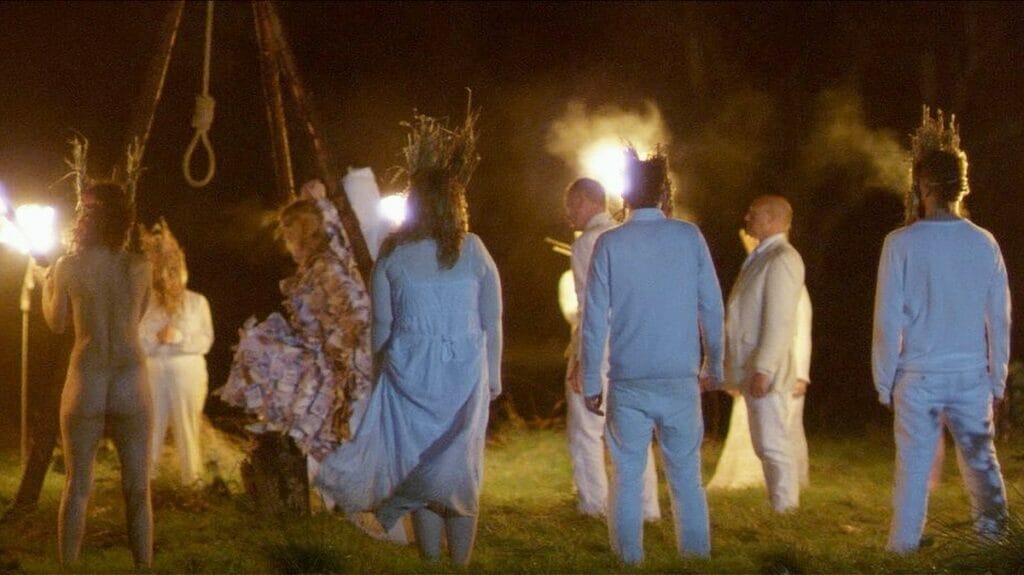A disaffected hitman and his best pal descend into an entirely different sort of hell in the director/writer’s genre-hopping nightmare.

Every month, The Spool chooses to highlight a filmmaker whose works have made a distinct mark on the cinematic landscape.
With his love of mixing horror, dark comedy, and crime Ben Wheatley has been flirting with but never breaking through to the mainstream. However, this month that may all change.
This piece was written during the 2023 WGA and SAG-AFTRA strikes. Without the labor of the writers and actors currently on strike, the movies being covered here wouldn’t exist.
Like John Constantine sez, there’s more than one road to Hell. For one, there’s self-annihilation, through refusing to face your own failings and the consequences of your actions. There’s moral oblivion, entered into by the prioritization of money above all else—the how and the what be damned. Then there’s the curdling of love—not its ending, but its mutation, its twisting into something thorned. Finally, there’s coming face to face with true evil and coming away from the encounter with the growing fear that it walked away with precisely the cards it wanted.
Kill List adds one more: running afoul of a murderous, very likely supernatural cult who brought heavy firepower to complement their arcane-built-on-willing-human-sacrifice-rituals.

Jay (Neil Maskell) and Gal (Michael Smiley), former (or perhaps ex fits better) soldiers turned hitmen face these trials in Ben Wheatley’s 2011 crime story folk horror hybrid. As killers, the two are competent. They’ve built a positive reputation amongst those in need of contract killers. As people, they’re wrecks—Jay even more than Gal.
Gal’s a deeply lonely sad sack with a possible drinking problem. Jay’s got a volcanic temper on perpetual boil. He now wallows in self-pity after an unexplained something went sideways in Kyiv eight months ago. He loves his wife, fellow former soldier Shel (MyAnna Buring). Unfortunately, that love can’t stop their relationship from dying by centimeters. He loves his son Sam (Harry Simpson), too. Still, it’s easier for Jay to shower Sam with cheap gifts in place of making a true connection.
The job offers little solace. Murder is not a glamorous line of work. It seems all crummy hotels shared with obnoxious guitar-playing vaguely Christian hippies, terrifying clients, and worse targets. The latter are the sort of vicious ghouls whose hobbies reduce a wrathful hitman to horrified tears and then merciless, wildly unprofessional revenge. That reality might be crumbling with ominous portents of dark design all around is merely the cherry on top for Jay. In the course of his and Gal working the list, he is unmade completely.
As upsetting as Kill List’s first two acts are, Wheatley’s filmcraft is sturdy and confident.
Kill List is, by design, an extremely disturbing film. Key to this is its total commitment to anti-romanticism. Jay, the criminal underworld, and the cult he and Gal have the bad fortune (or perhaps more) to cross are decidedly and deliberately uncool. Maskell’s performance is critical to this—as loathsome as Jay can be, he is not a caricature. The professional killer has bad days and good, moments of peace where his care for Shel and Sam wins out over his self-pity and wrath. For all that his career is decidedly out of the ordinary, he’s a middle class and hoping for more guy who needs some fast cash to get his jacuzzi fixed.
Maskell, Wheatley, and company ground Jay’s terror and viciousness, placing it on a continuum of behavior that traces back to a need for control—a need Kill List demolishes through increasingly upsetting violence and a gradual erosion of the familiar. It begins with a chronically fraught domestic life before shifting into a violent mode its protagonist knows all too well. The film violates that bloody but recognizable space, though, continually undercutting expectations. The targets, for instance, welcome their violent death—to the point of thanking Jay, much to his consternation. And then Wheatley lets all hell loose in a chaotic conclusion.

As upsetting as Kill List’s first two acts are, Wheatley’s filmcraft is sturdy and confident. Jay’s good moments, Gal’s comic relief and care for his best mate, and a persistent thread of darker-than-dark humor leaven the moral terror. Wheatley and cinematographer Laurie Rose shoot the violence clearly, terrifying in its plainness. Thus, when Jay and Gal cross the cult, and Wheatley jumps the filmmaking to a chaotic, frenetic mode, it is as disorienting and unsettling for the audience as it is for Kill List’s hapless protagonists. In particular, a frantic clash in a tunnel whose narrow, ill-lit dimensions, combined with the cult’s unearthly shrieking (a magnificent piece of sound design), take the mood from unsettling to full-on nightmarish.
And yet, even with the supernatural in play and a gut-punch last-minute revelation, Kill List keeps a foot in the unsentimental familiar. The cult celebrates victory not with an arcane chant or an evil dance, but with polite golf applause. It’s a beat of comedy swiftly sickened by what it reveals about the cult and its reach. Their baroque machinations, the horrible violence they have dealt and courted—they are the cult’s normal. If the plot had a long-awaited result, the process is nothing new. A fitting endpoint for a film built on terrible normality.